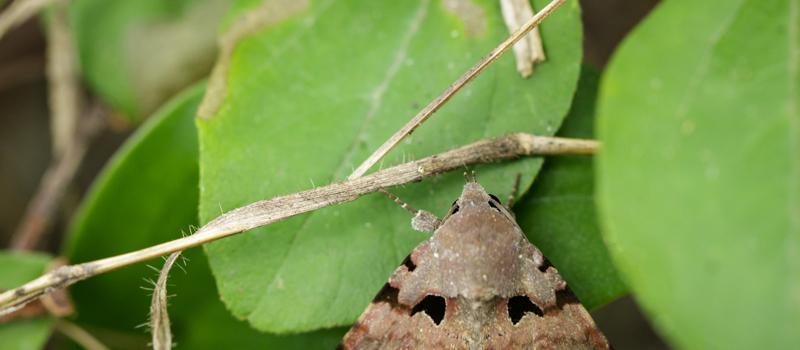Moths Are Pollinators, Too!
Posted by Mosquito Squad
July 21, 2023

When you think of pollinators, which insects come to mind? Honeybees, butterflies, or maybe even beetles are the typical signs of spring and flower pollination. But one group of insects is severely overlooked despite their essential roles as nocturnal pollinators… Moths!
Moths Vs. Butterflies
Moths are relatives of butterflies, both belonging to the insect order "Lepidoptera," Greek for "scaly wings." Though the two-winged Leps look similar, most moths have chunkier abdomens, fluffier antennae, and wings close to their body at rest. Conversely, butterflies are usually slender-bodied, have thin, clubbed antennae, and spread their wings out when resting to bask in the sunlight.
Another difference between butterflies and moths is their work schedules. Butterflies take the day shift, pollinating and basking during the warmest parts of the day, while moths take the graveyard shift pollinating during dusk and nighttime hours.
Moth Pollination
Not all moths are pollinators, but the ones that provide crucial pollination services to a variety of wildflowers and native plants. Most adult moths will emerge from their cocoons without a mouth or a digestive system, so they have no reason to search for flowers. However, the moth species that do pollinate are proficient at gathering nectar, even more so than bees!
New research published earlier this year found that moths visit flowers faster than day-visiting insects, allowing them to spread pollen quicker than other pollinating insects. Moths also possess larger and hairier bodies than other pollinators, allowing more pollen to stick to them and spread to other plants.
Hawk Moths (Sphingidae sp.) have unique mouthparts to help them during pollination. These mouthparts (also called "proboscis") work like a giant tongue or a long drinking straw, allowing them to suck up nectar from flowering plants, and a hawkmoth's proboscis measures two to three times as long as their body!
Yucca Moths (Tegeticula sp.) are the sole pollinators of the yucca plant. Though these moths may be tiny and unassuming, their interdependent relationship with yucca plants makes them stand out against other moth species. In fact, different species of yucca plants have their own distinct yucca moth species that help keep the plants alive and fertile.
Our Promise to Pollinators
At Mosquito Squad, we strive to preserve and protect native insect pollinators. Our licensed technicians are trained to identify and avoid treating pollinator foraging areas, allowing us to rid your yard of mosquitoes while promoting bees, butterflies, and moths to continue to visit your lawn.
Contact your local Mosquito Squad to learn about our treatment options and schedule your service today.
